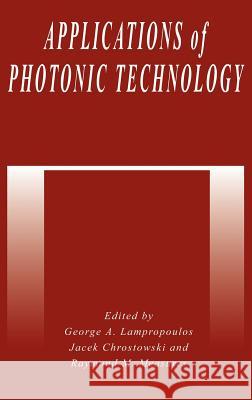Applications of Photonic Technology » książka
Applications of Photonic Technology
ISBN-13: 9780306450112 / Angielski / Twarda / 1995 / 566 str.
In this book we present a snapshot of the state of the art in photonics in 1994, showing typical applications and emerging new ones; discussing the key technologies behind these applications, their limitations, and prospects. The articles in this book are extended versions of the papers presented at the first International Conference on Applications ofPhotonic Technology (ICAPT'94), held in Toronto, Canada, on June 21-23, 1994. Photonics has been recognized as one of the key technologies for the 21 st century, as electronics was the technology of the 20th centrury and electrical engineering changed the life of people in the 19th century. According to the recent report of the Organization for Economic Cooperation and Development in Paris (OECD), the market for photonics will grow dramatically in the next 10 years with an expected world-wide expenditure of US $230 billion from some US $30 billion in 1992. The explosion of information technology was the largest driving force for the deployment of photonic technology. It created insatiable demand for ever-higher data transmission and processing rates, which cannot be sustained by electronics alone. Boosted by the enonnous investment of the telecommunications and defense industries, the demand for photonics (or optoelectronics) is steadily increasing. It is solidly established in the long- haul communications, laser printers and CD-ROMs.











